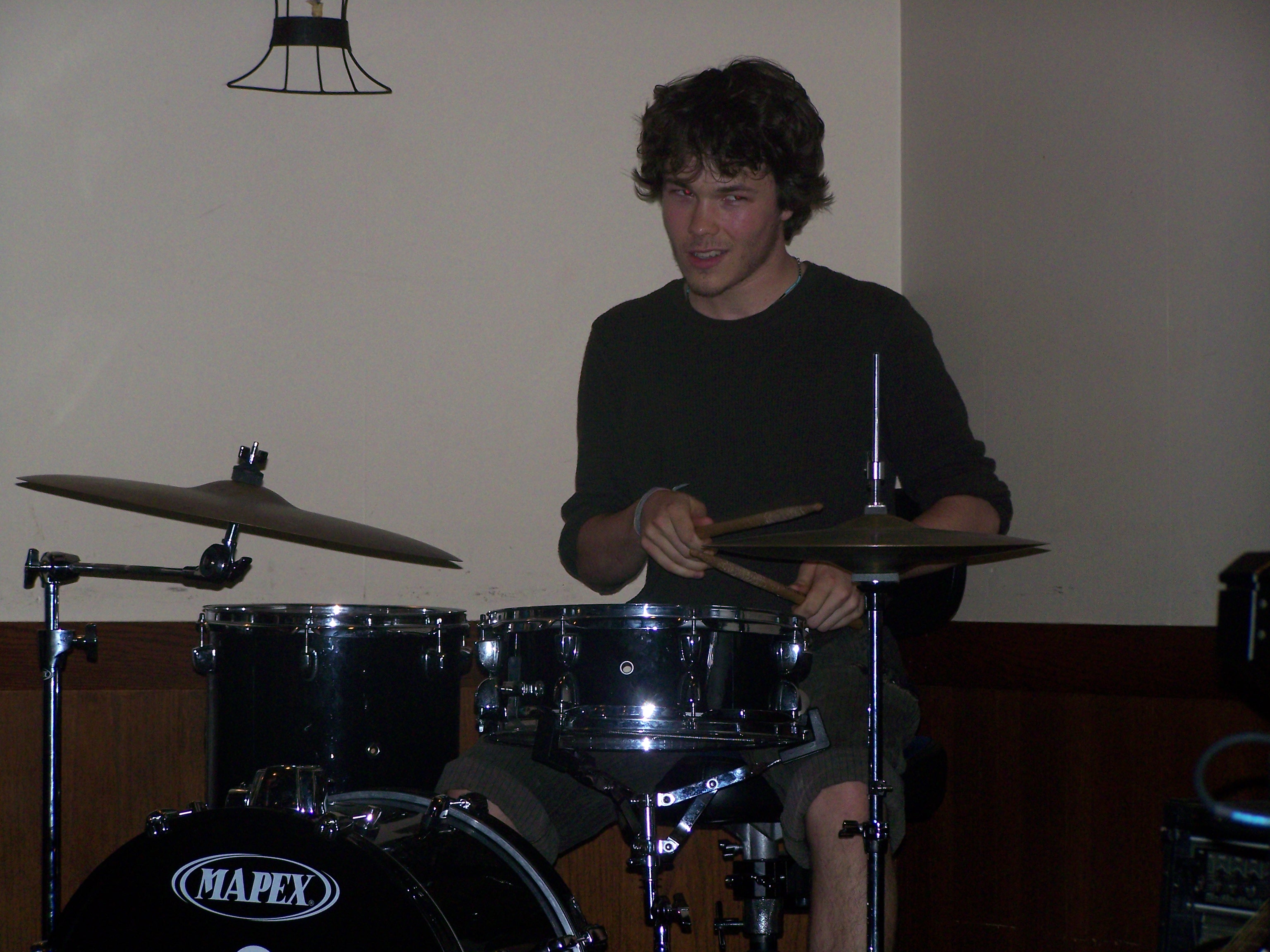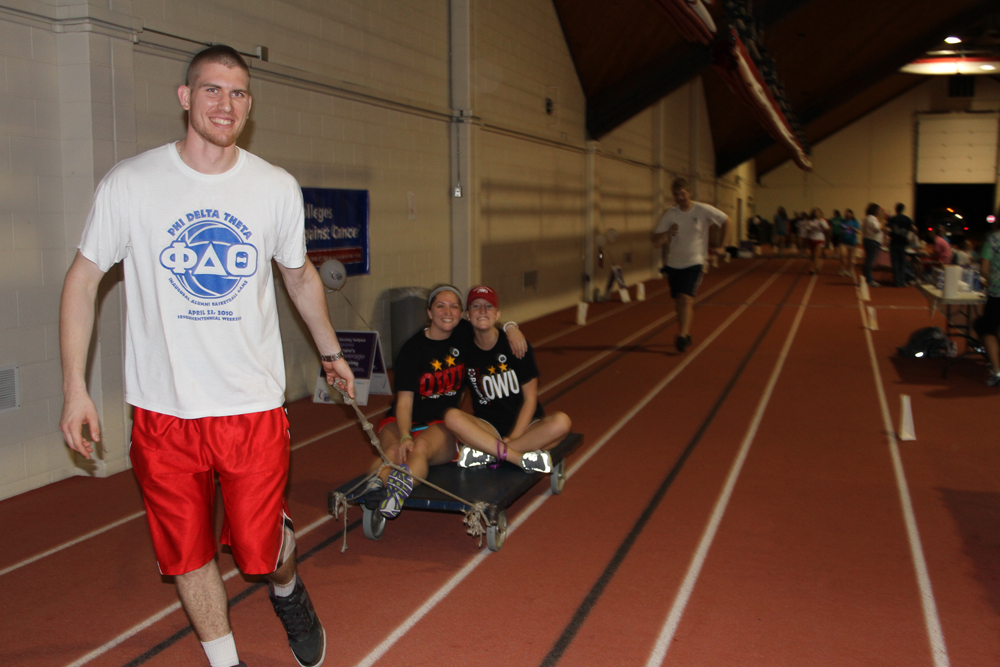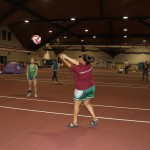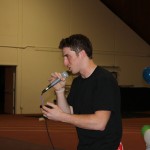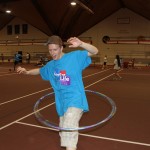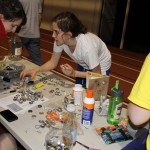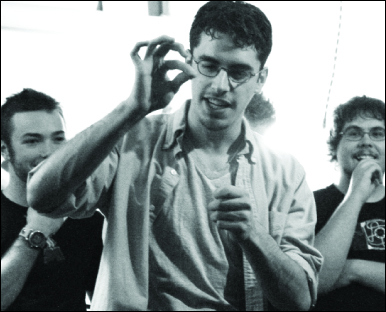If you were to walk by the Avvio Italian Restaurant and Grill, you would no longer see the hustle and bustle of a restaurant in full swing. Instead, you would see a sign in the window that says, “For Lease,” and a letter from the owner Bryan Lipps.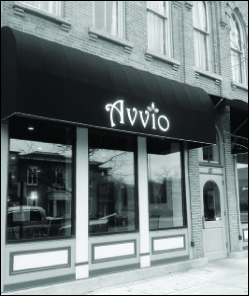
“Avvio is closed indefinitely,” the letter said. “The sales levels simply never became sustainable. Thanks to all of you who did give us a chance. It was a fun concept while it lasted.”
The restaurant, which replaced Hoggy’s on the corner of Sandusky and Williams, was opened for less than a year. The decision to close was made the morning of March 12, and after a normal day of service, the restaurant closed its doors.
It closed because of no cash flow,” Junior Tylor Havemann said. “There simply wasn’t enough business to sustain it.”
Havemann was an employee at Avvio, and said he was upset to see the restaurant close.
The restaurant did have issues in the beginning, Havemann said, but those issues were resolved quickly. However, the initial perception the community had about Avvio seemed to cause a serious struggle for cash flow.
“I feel the problem was when we first opened and people rushed to visit us, we were caught off guard and made mistakes,” he said. “The amount of negative reviews and words spoken far outweighed the positive experiences, mostly because no one bothered to take the time to write a few lines online or tell their friends.”
Havemann said the staff of Avvio’s was upset about the closing.
“We all spent loads of time trying our best to make a new concept work,” he said. “Shutting down is failure, and no one likes failure.”
According to an article done by The Transcript earlier this semester, Avvio was trying out a new layout for a restaurant, where a customer would order their food at the counter, retrieve their own silverware and drink, pick their own table, and then after the meal bus their own table. Ray Smith, the former Vice President of Marketing, said in the previous article Avvio was a place where all were welcome, and encouraged to be the best part of themselves .
“I’m sorry to see things end up the way they did with Avvio,” he said. “We were off to a great start and we were still rolling out the necessary marketing programs.”
Havemann also said he will miss the atmosphere of Avvio’s and what Avvio stood for.
“It had something special to me simply because I personally invested serious brainpower into the restaurant,” he said. “I went all-in on everything I could to keep business.”
“I can’t tell you the amount of times people walked into the doors, ordered, sat down, and after the food arrived and they tasted it, they said, ‘Oh wow, we’re pleasantly surprised! From what we heard you weren’t so great, but I’m glad we came in ourselves!’” he said. “Hearing such things has serious effects on a person that invests time and money into something they love.”
Havemann said he now on a mission to find a new job in town.
“It’s hard to find something local, flexible, understanding, and reasonable like Avvio,” he said. “Small businesses feel like families, and that’s how I was treated.”
Living a double life: Students pride themselves as members of SLUs and Greek life despite stereotypes
Two of the most tight-knit communities at Ohio Wesleyan are Greek Life and the Small Living Units. These two communities collaborate, but do they also clash?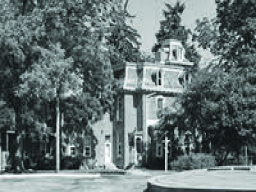
Greek life and SLUs are two of the larger organizations on Ohio Wesleyan’s campus. From an outside perspective, they may appear to be two organizations whose paths would never cross. They may seem to have different values from one another and often one has stereotypes about the other.
But recently those stereotypes that may have kept a member of one organization from joining another seem to be changing. With all but one sorority represented in the SLUs it seems stereotypes about these two organizations may be in the past.
There are seven SLUs located on OWU’s campus. Each SLU house is dedicated to a different cause, such as women’s rights, environmental causes, human justice, etc. There are values that come along with living in a SLU. These values are a part of both the wide spread SLU community and each house.
Carrie Miller, residential life coordinator of Hayes and the SLUs, believes the values the SLUs have are unique and important for students who do not find dormitory life to be a good fit.
“I think one of the main values that SLUs bring to OWU is a really centralized space of discussion of ideas and projects that educate the community,” Miller said. The SLUs create a community of “independence, creativity, and advocacy. Students who think differently about things and are passionate about something enough to want to educate the community about it,” Miller said.
These values and the tight community that SLUs are associated with can often be what perpetuate the stereotypes and feelings SLU members have towards Greek life.
Junior Chris Marshall, who is a member of Tree House, said he has some negative feelings about Greek life.
“I don’t have the highest opinion of Greek life as far as compared to how I’m living now,” he said. “The frats have a pretty negative reputation on campus. I’m not sure it’s all fair but it’s not something I wanted to be a part of.”
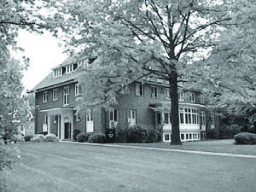
“Within our house we do use the term ‘frat guys’ in a negative connotation sometimes, because we have neighbors who are loud and I guess we don’t have the best opinion of frats,” he said.
Marshall does feel, however, that there is a more positive feeling about sororities within Tree House. Partly, he believes, because one of their house members is in a sorority and also because many of Tree House’s members have friends who are in sororities.
While there may be negative stereotypes that people in SLUs have about Greek life, SLU members said they are aware that there are also stereotypes which people both in the Greek community and in general, associate with them.
One of the largest stereotypes that SLUs face is that they are inaccessible.
Junior Victoria Sellers, who is a member of the Women’s House, feels that this stereotype comes from people not being familiar with SLUs.
“I think people who aren’t involved or friends with the SLU community are a bit intimidated by SLUs in general, since the SLU members are usually very tight-knit based on living situation and interests.”
Similarly to the SLU community, Greek women who do not live in SLUs are also aware of the stereotypes about sororities, but according to junior Margaret Bagnell who is a member of Tri-Delt, these stereotypes are something to work through.
“The stereotype of being a sorority woman is something that all women who are affiliated deal with,” she said. “Although it is mostly negative it offers us a chance to break that description and show that we are not what people see in the movies.”
Bagnell said she has heard few negative stereotypes about the SLUs in the Greek community and she considers them to be very much like a sorority.
“SLU… occupants I consider to live somewhat like a sorority,” she said. “Each SLU stands for certain values and can be identified with some hobby or interest they all share. SLUs I think offer people another way of being a part of something bigger on campus, just like sororities do.”
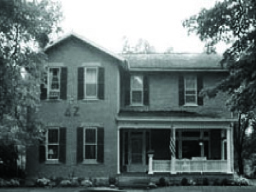
Members of the Greek community who live in SLUs do so for a variety of reasons, one of them being to increase their level of involvement on campus.
That was the case for junior Amanda Boheme who lives in the Inter-Faith house and is a member if Delta Zeta.
“I wanted to be more involved on campus … the SLUS concentrate on different issues and I wanted to give back to the community, I wanted to make myself exist on campus,” she said.
While many Greek women in SLUs joined to get more involved, their reason for joining a sorority was usually different.
That was the case for Junior Anna Cooper, who recently was accepted to live in the house of Peace and Justice next year and is a member of Delta Zeta. She said her reason for joining a sorority was much different than for joining P&J.
“I was opposed to Greek life because I didn’t fully understand how genuine it was and how it could help me grow as a person,” she said. “Once I decided to be open to it I saw that it would be a positive experience, they appreciated me as an individual but wanted to help me grow as a person.”
Although these women have chosen to join a sorority and live in a SLU they are still aware of some stereotypes that are said about Greek life within SLU life.
Senior Maren Oehl lives in the Inter-Faith house and is a member of Kappa Alpha Theta. She feels people rarely say negative things about Greek life in the SLU community but when they do they are usually general comments.
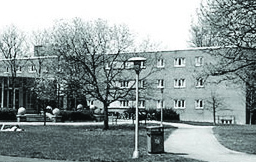
Cooper echoes Oehl in thinking the negative comments are coming from people who do not really understand Greek life, but she also adds that she has heard more negative comments about fraternities because Greek men cannot live in SLUs.
“I’ve heard negative comments before towards Greek life, I think it’s mostly from people who don’t totally understand what Greek life is and the positive experience,” she said. “I think its more men than women because there are no Greek men in SLUs, there are no Greek men to offend.”
There seem to be still mixed feelings about Greek life within SLUs, but the attitude seems to be one of at least partial understanding, perhaps because sorority women are becoming more present in the SLU community.
Sophomore Rachel Vinciguerra feels that because she has a lot of Greek women in her house people are more understanding of her commitments to Kappa Alpha Theta.
“Our house is nice because we have four of the five sororities on campus represented and people in the house are very understanding of our sorority commitments since it pertains to so many of us,” she said.
Not only does Vinciguerra say she feels that the Inter-Faith house is more understanding, she also feels they are more encouraging of her sorority activities.
“At IF everyone is really supportive of our philanthropy events,” she said. “Our house had a team for DZ’s Jello tug-of-war and many of my housemates donated to CASA by helping out with food points for Kats and Bats.”
There seems to be more willingness from both the Greeks and SLUs to collaborate the two organizations more frequently, despite the stereotypes floating around.
“I think Greek Life and SLU life could work well hand in hand,” Bagnell said. “When it comes down to the core values, each house, whether Greek or SLU, are very similar in the way that they offer people a place where they can grow and become a part of something, and to have places on campus which allow people to make more sense of college life and develop more intimate relations with others is a great thing.”
Can the 1-in-4 find the help they need?
One in four.
This was the tagline of a campaign by Active Minds, a national collegiate mental health advocacy group with chapters all over the U.S., including here at Ohio Wesleyan.
It represents the roughly 25 percent of adults diagnosed with mental illnesses. It is important to note, this statistic is only of diagnosed cases; it is possible that more exist, but go undetected due to barriers to treatment such as social stigma and unavailability of mental health services.
Active Minds works to combat these and other barriers, hoping to foster an environment where everyone can get access to the treatment they need without hesitation.
This has long made me wonder about the prevalence of mental health concerns at Ohio Wesleyan.
As a psychology student hoping to enter the field of counseling, I wonder “are our counseling services equipped to handle this demand?”
If we take ¼ of the student body (1850), we have an estimated 462.5 students needing mental health services. Seems like a lot, doesn’t it? Especially when compared to the capacity of counseling services, which is staffed only by 2 full-time and 2 part-time counselors.
If we assume that each of the full-time counselors work 40 hour weeks, and that the 2 part-time counselors work 20 hour weeks, that gives us 120 hour-long sessions per week available for students. (It is likely that the 2 part time counselors work more than 20 hours, but still under 40. If we assumed they worked 30 hour weeks, this only gives us 140 hour long sessions per week).
Let’s say all of the OWU students decide to seek treatment for their illnesses. If we fill the 120 available sessions per week, 342.5 (74 percent) are left without treatment.
If every student struggling with a mental illness at Ohio Wesleyan called Counseling Services today, only 1 in 4 of them could reasonably expect an appointment this week. Another one in four of them would wait a month, or maybe even longer.
If the health center posted similar wait times, parents would have the phones at OWU ringing off the hook.
While Counseling Services is able to provide a referral, the added cost and possible travel may well serve as a deterrent for some students, thus decreasing the proportion who receives the services they need.
By continuing to view mental health services as a corner to be cut, the safety, happiness and productivity of students is endangered. The loss of focus and energy accompanied by many mental illnesses can be debilitating, and once simple tasks can become monumental struggles.
Unfortunately, Ohio Wesleyan is no stranger to dangerous and sometimes tragic events that possibly could’ve been avoided with abundant counseling services.
My intent is not to belittle the counseling department, actually to the contrary. In my experience it is staffed by knowledgeable and friendly professionals who are passionate about their work.
My aim is to draw attention to their need for support as an entity of student services.
The number for counseling services is (740) 368-3145.
Summer internships: a neccessary evil
The days when summer meant lounging by the pool with friends and the occasional lifeguarding shift or babysitting job are long gone for most college students who struggle to find internships for their summer vacations.
As a junior at Ohio Wesleyan, the pressure to acquire an internship for the summer is constant, however, this pressure increases greatly during the spring semester.
Internships are tricky for multiple reasons. The ability to even be considered for one relies heavily on your connections and who you know, making it difficult for a student who is well qualified but ill-connected to obtain one. Internships are also almost always full of dull administrative work and even are unpaid or only for academic credit, which can make the task of interning seem more like a duty than an interesting way to gain experience.
Typically, students don’t hear of whether or not they receive an internship until April or May, causing students to have little idea of what they’ll be doing for the summer for nearly a third of the academic year, which, from personal experience, can leave one stress ridden about their impending future.
Spending your summer alphabetizing files or getting coffee for your boss for free makes the entire concept of an internship very unappealing, however, it is a necessary in order to ‘bulk up’ a resume.
Internships are only one way for companies to see what you excel at or the skills you have. However, obtaining internships may make a student feel more at ease about their future.
Summers that used to be looked at as a time of leisure, friends and the beach are now stress-filled eight-hour days spent struggling to be the best possible intern in order to receive the best possible reference.
So whether your are stressing over the daunting application and interview process or dreading returning to the same office you interned for last summer, remember to make time to enjoy yourself.
As college students cramming for exams and writing term papers, we should still try to enjoy this time at OWU because as those who have interned before know, the tasks of making 500 copies and getting everyone at the office’s coffee orders right are just as treacherous.
Student thinks ‘The Vow’ disavowed overall quality
Believe it or not, “The Vow” is based on a true story.
The film takes its premise from an eponymous book by Kim Carpenter that details his wife Krickitt’s recovery from memory loss following a car accident that left her unable to remember him, her husband, or their marriage.
This sounds like an episode of a soap opera, but it actually happened. It happened to two people, two very real human beings, on which it undoubtedly took a great emotional toll.
The film, however, fails to reflect this fact whatsoever.
The romantic-drama dream team of Channing Tatum and Rachel McAdams star as Leo and Paige, a twenty-something Chicago couple.
They first meet shortly after Paige, a Northwestern law school dropout, moves into the city to study at the Art Institute. After a series of unconventional dates, they eventually wed—in an art museum, naturally.
This back-story is told by a series of flashbacks following the events of the film’s first five minutes, during which a large truck slams the couple’s sedan at a stop sign.
I’d like to digress for a moment to point out the utter inconceivability of this accident.
The couple’s car is stopped legally, and the truck can be seen approaching at full speed, its horn blaring as Paige and Leo make out unapologetically. This raises some questions, none of which the film ever attempts to answer.
First, why is the driver making no effort to avoid the car? Unless both the truck’s brakes and steering were disabled, anyone with common sense would try to go around it. I find it difficult to believe any sane person with an advanced driver’s license would become so enflamed with a pair of absent-minded newlyweds that he or she would attempt vehicular homicide.
Additionally, why is there no kind of legal dispute between the couple and the driver? Leo and Paige are both uninsured (a fact not revealed until more than halfway through the film), so their treatments have burdened them with massive medical debt—which the certain monetary settlement or judgment a lawsuit would provide would probably have helped assuage.
Finally, why do neither Paige nor Leo notice the behemoth big rig behind them? My experience has been that kissing, no matter how passionate, cannot induce temporary deafness and blindness—the only logical explanation as to why the horn and blinding headlights elicit no reaction from the couple.
These holes, however, are the least of the film’s problems.
Because Paige’s seatbelt was unbuckled when the truck struck the car, she was thrown out the windshield headfirst, causing a traumatic head injury.
She awakens from a medically induced coma several days later with an intact long-term memory—she can recall her childhood and contacts her wealthy parents, whom she had been estranged from for several years—but no recollection of Leo or her marriage.
In the early stages of her recovery, Paige does fairly well adjusting to the strange man claiming to be her spouse. But Leo undermines this progress on several occasions.
When Paige first reluctantly goes home with him, she finds his apartment full of her friends—none of whom she remembers. Understandably, she’s disoriented and overwhelmed, and leaves the room in tears.
Leo’s strategy of aiding his wife’s recovery introduces too much, too fast. Instead of gradually reintroducing Paige to her daily routine with him, he drowns her in a life vastly different from anything she remembers.
Instead of having any empathy for her, he gets angry when she doesn’t want to be around him.
Leo’s expectation of his wife to want to return to life with him obliterates the notion of consent. In his eyes, she is obligated to be with him because their relationship had worked so well in the past, and he’s willing to make no concessions to return to his idea of normalcy.
However repugnant this may be, Leo is not solely guilty of treating Paige like an inhuman possession.
Her parents, along with her former fiancée, are equal perpetrators.
They take advantage of her limited memory to coerce her into returning to the life she willingly left.
The fact that she was unhappy as a socialite law student has no weight—they want her back, and they use far more reprehensible means than Leo’s to achieve that end.
The despicableness of Paige’s former family is the only device the film uses to form any emotional connection with Leo—the audience is compelled to root for him simply because he’s the lesser of three or four evils.
But that does not mean he has any actual redeeming qualities.
In addition to this subtle misogyny, the film fails to introduce basic character details at the appropriate times and establishes several unresolved subplots that are largely implausible completely irrelevant to the central story.
For instance, it was unclear whether Leo had a job until 45 minutes in, when it’s revealed he owns a recording studio; and it’s not disclosed until the end of the film that Paige abandoned her former life because her father had an affair with one of her childhood friends.
Overall, “The Vow” is the worst kind of bad movie—it’s awful enough that the nearly one hour, 45 minute runtime drags by, but not so execrable as to be funny in any way.
Baseball challenged by Marietta, keeps high season outlook
The Bishops’ men’s baseball team remained strong on March 29, in their game against Marietta, which is ranked as the number two team in the nation.
The non-conference game was played at Littick Field, with a resulting score of 2-0, Marietta. Evan Brockmeier scored a run in the second inning, giving Marietta a 1-0 lead, and Bryan Gregorich scored once more for Marietta in the sixth.
Although the Bishops lost, senior James DiBiasio said he is proud of the way the team played against the tough opposing team.
“Our team usually plays up to our competition,” said DiBiasio. “We had a good game defensively, and both of our pitchers did a great job.”
DiBiasio also commented on the talent of Austin Blaski, the pitcher playing for Marietta.
“The pitcher was actually being scouted … there were four major league scouts at the game,” he said.
Blaski played the first seven innings, and the eighth and ninth were pitched by Kyle Lindquist. Junior pitcher Brandon Sega played the first five innings, striking out five and walking three.
“During the game, I was just concentrated on controlling what I could control. I knew they were a good team, but I treated them like I do every team,” said Sega.
Both Sega and DiBiasio said their team could improve its use of offensive strategies, as well as the psychological aspects of the game.
“What the team could work on is more consistent hitting, but that will come with time as guys get more swings,” Sega said. “Also, eliminating mental mistakes from our game will greatly improve our performance.”
“Offensively, we need to get in our rhythm, and start getting more hits,” DiBiasio said.
Sega said he hopes to improve on these strengths and weaknesses throughout the season.
Softball hits two losses in Muskingum doubleheader
Ohio Wesleyan’s softball team lost to Muskingum last Wednesday in a non-conference doubleheader. The first game left the Bishops behind by one run, while the second game had Muskingum 10 runs ahead of OWU’s six.
In the top of the seventh inning, Muskingum scored twice and withheld the Bishops rally in the bottom of the inning to win the opening game.
In the first game, sophomore Danielle Haley got locked up in a pitchers’ duel with Muskingum pitcher Ashley Price.
Haley trapped a runner in scoring position in each of the first four innings, working out of a bases-loaded situation in the fourth, and got an inning-ending play from junior Lauren Elkins. He got Price out at home plate when he attempted to score from second.
Elkins said the team played really well against Muskingum, but their hits wouldn’t fall at the right times with runners on base.
“Muskingum is always a pretty solid team, because they are such strong hitters. But we just couldn’t follow through with timely hits,” said Elkins.
The Muskies took the lead in the seventh inning when Samantha Aguilar hit a double to right center and scored when Aly Mazzei trailed with a double. Muskie pinch-hitter, Jessica Saporito, then hit a single which brought home Mazzei, giving Muskingum another run on the board. Bishops’ junior Stefanie Rieder hit a single, and one out later, took second on an infield out by Elkins. OWU junior Brooke Nethers hit a single, which took Rieder to third base.
“We played a great game against Muskingum,” said Haley. “It was 0-0 until the seventh, and their hits fell when they needed them to.”
Sophomore Erica Bryan bunted, letting Rieder score and make the tally 2-1 as Nethers hurried all the way to third base. At the end of the first game, Price got senior Jackie Kolovich on a game-ending out.
In the second game, Kolovich started the Bishops out strong with a double, bringing two teammates home, to make the score 2-0. After Kolovich had OWU on top, Muskingum came back with nine consecutive runs. They withstood a pair of Bishop rallies and swept the game.
OWU took the lead with a walk from Nethers who then went on to steal second base in the first inning. Following Nethers, Bryan hit a single for the team.
Freshman Chelsea Denman bunted but was unsuccessful when Muskingum third basemen Kellie Coy caught the ball and then swung it over to get Bryan out, bringing the Bishops two outs.
Kolovich sent a double to an opening in the left center, which gave the Bishops a 2-0 lead.
Muskingum got back on the board in the top of the second inning. They scored on an RBI triple by Kayley Brevard and a two-run homer by Patterson. The Muskies then added a run in the third on Coy’s RBI double.
Haley said she gave her team 110 percent that game, as she does every game, and that is what matters.
“The game really could’ve gone either way. It just happened to fall their way this time,” she said.
The Muskies had five runs in the fifth, with Brevard and Jendy Weppler hitting in runs and Weppler stealing home.
“As a team we played really well, we just had a couple moments where we did not capitalize on some opportunities,” said Nethers. “When you play good teams like that you have to use every opportunity they give you or you create.”
In the bottom of the inning, OWU came back, scoring on Denman’s RBI ground out and a fly from Haley. They added two more runs in the sixth on RBI singles hit by Nethers and Denman. Nethers left second base too early to end the inning, and Muskingum’s Rachel Bannister retired the side of order in the seventh to lock up the win.
Nethers was 2 for 2 with two runs scored, while Bryan went 3 for 4.
Nethers said the team will play DePauw on Wednesday, and that will be a very big game for their season. She said it would be a great way to see where OWU stands in the region.
Elkins said their whole schedule is pretty tough for the season, so it would be hard to name their most difficult matchup.
“Conference is always a really tight race and our non-conference schedule is pretty tough as well,” she said. “Most of the non-conference teams we play are ranked in the region and some even nationally, so it’s hard to pick the toughest game.”
Elkins said that it’s good that they have such a hard schedule, because it is going to prepare and force OWU to play consistently.
OWU faces Denison on April 14 at 1 p.m. and Hiram on April 17 at 3:30 p.m.
Battle for Crossroads: Battling bands show both competition and companionship
The band Hairy Tribe of Conquerors lived up to the latter part of its name after winning the vote to open for Crossroads, but it was not all about competition at the Battle of the Bands.
Crossroads is a night of concerts sponsored by the Student Union on Black Awareness (SUBA), Campus Programming Board (CPB) and WCSA.
The Battle of the Bands competition was held to decide which of the six acts would be the opening act for Crossroads. At the end of all of the performances, the audience voted on who they wanted to see as the opening act.
“We are a little surprised; we were not really looking at it competitively,” freshman Ben Anderson, drummer for Hairy Tribe of Conquerors, said. “But at the same time, we are not too taken aback because we are musicians, and this will be a sweet growing experience for us.”
The band played all instrumental songs, making use of complicated guitar riffs and effects by sophomores Brihat Sharma and Alex Michener and keyboard effects by sophomore Alex D’Amore-Braver.
D’Amore-Braver said they consider their music to be progressive rock, but said they have played many types of music, even including reggae.
Anderson said the band started in the first semester of this school year. The band members aren’t planning to become a big group. They just want to have fun.
“If we feel like playing, we play,” Sharma said.
While the event was competitive, there seemed to be a sense of unity among the bands performing. In fact, there were students who played for multiple bands throughout the night. Sophomore Mike Cormier and senior Bobby Kuhlenberg played for both Log Jam and Pop’s Lake.
Cormier was the drummer for Log Jam and for the first song by Pop’s Lake. He then stepped out from behind the drums to sing a trio with the other members of Pop’s Lake, sophomores Sam Sonnega and Erika Nininger. Kuhlenberg played guitar and sang for Log Jam and played bass for the first song of Pop’s Lake.
“I hadn’t rehearsed with Pop’s before the show, they just asked me for some help, so I filled in some of the low end,” Kuhlenberg said.
Kuhlenberg said he was excited to see that many of the band members playing throughout the night were freshmen and sophomores. He said when he was younger Log Jam was the only band on campus.
“Despite having literally no competition (when he was younger), I think that fact ultimately hindered us because we lacked the support system that these younger folks enjoy now, the encouragement of a music community,” he said.
The band members of Hairy Tribe of Conquerors are also involved in the music community Kuhlenberg described.
“We all participate in different groups on campus, but we still all stay together as a group,” Anderson said.
Hairy Tribe of Conquerors will take stage at “Crossroads” on this Saturday, March 31, at 7 p.m. in Gray Chapel.
The band will get to play a 20 minute set before the headliners for the evening, Lloyd and Hellogoodbye, begin their shows.
Tickets are $10 with an OWU card and can be purchased at www.owutickets.com.
“I am ecstatic that Hairy Tribe won the contest,” Kuhlenberg said.
“I am close with some of them and they definitely deserved it, hands down. For once, a vote reflected wisdom!”
Relay for Life
Gordon Field House was filled with OWU students and faculty, community members and most importantly, cancer survivors Friday at 6 p.m. for the university’s annual Relay for Life.
The event began with opening services that honored sophomore Jake Von Der Vellen, who had been the committee chair. Senior Alexis Plaga, president of Colleges Against Cancer at OWU, and other Relay members recalled their memories with Von Der Vellen and dedicated the event to him.
After the opening speech, the first walk began. Survivors and Von Der Vellen’s family walked around the track as everyone else in the arena cheered. After the first lap, caretakers joined. The last lap was the team lap and the start of the continuous walking. During the event, the rules are that at least one team member must be walking at all times.
Teams were made of fraternity, sorority, sport, club and community members. Each team had a booth with food, games and other activities for fund raising as well as information about the type of cancer they chose to promote awareness about. Friends and more members of the teams came and went throughout the night to show support and walk a couple of laps.
All money raised will be going to Relay for Life and the American Cancer Society, according to Plaga.
Freshman Ashley Truxell said this was her first relay and she was very excited, considering her past experiences with similar events.
“They used to have a weekend event in my town and I always wanted to do it,” Truxell said.
Music played throughout the event as those gathered sang and played games.
The Luminary ceremony, held later in the night was a part of the event to walk to celebrate the lives of those lost. The lights in the field house were turned off as senior Solomon Ryan spoke about the ceremony and what each luminary represented: the life of someone lost to cancer. Luminaries lined the track as all the participants took a lap of silence to honor lost loved ones. Relayers could buy luminaries and dedicate them to someone they had known.
Games and activities were planned throughout the night to keep participants awake and engaged. The Mr. and Mrs. Relay competition had Relayers from each team dress up and collect money. Sophomore Sean Anthony won the Drag Race that was held. Zumba, three-legged races and a rap competition were just some of the other activities.
By 1 a.m. many teams had set up their beds for the night. There were air mattresses, tents and sleeping bags at every team’s station. However, some Relayers continued walking throughout the night. The event went to about 10:30 the next morning.
This year’s Relay for Life raised around $16,000 and every team helped contribute to this sum.
Plaga is hoping to raise more money to donate to the American Cancer Society. Overall, she thought the event was a success.
Theta Alpha Phi brews talent at Coffee Haus
Low lights and smooth jazz transformed Bashford Lounge into an ambient coffee house last Saturday.
Theatre honorary Theta Alpha Phi hosted their annual “Coffee Haus,” where students could be served coffee and small desserts, and be entertained by student performers.
With a three dollar admission, and snacks costing less than a dollar each, the proceeds went directly to funding the honorary.
Ohio Wesleyan students performed in various mediums, such as slam poetry, stand-up comedy, song, dance and improvisational comedy.
Freshman Shannon Dean said, “I think Coffee Haus is really cool. I went to the Red and Black Revue, and I liked that they had a more informal setting here so that people could come up, perform and have fun with it.”
The event had a casual tone to it, with students coming up who had not even planned to perform. They pulled up poetry on their cell phones and sang songs they had memorized on their own time.
Some improvised their own comedy acts, telling funny stories about professors and experiences they have had.
The audience participated in many of the acts, providing background music, engaging in call-and-response and providing feedback.
Dean said it was fun watching other people having fun when they are onstage, because as a theatre major, she knows that when someone is on stage who does not want to be, everyone in the audience can see it. She said she appreciated Coffee Haus because everyone who performed truly wanted to be there.
Junior Liz Anderson, a TAP member, said, “I think Coffee Haus went really well. It’s a great place for the campus to come together and see each other’s talents and support them.”
Anderson said they had a number of really great acts including a capella music by Pitch Black, improvisational comedy from the Babbling Bishops, poetry by sophomore Gus Wood, and a performance by student band Rob and Todd in the Morning.
She said there was a great turnout of people in the crowd, as well.
Junior Alan Massouh said, “I thought it was awesome. I think it should happen once a month or on a more regular basis because it seems people were having a lot of fun bringing out their inner artist.”
